15 Amazing Benefits Of Healthy Eating On Your Life
Your diet may need an overhaul to treat health issues and help your body function properly.

Image: Shutterstock
It’s a no-brainer that there are many benefits of healthy food and a healthy lifestyle. Consuming foods rich in nutrients help your body function smoothly. Being in good health is the real wealth you must invest in. While your life is becoming busier and your food habits are deteriorating, it is never too late to start eating healthy to reverse all the ill effects of an unhealthy lifestyle.

According to a recent study, health-conscious eaters (53%) were more likely to limit their consumption of artificial sweeteners, sugar, and certain preservatives compared to those who are less health-oriented (36%). Further, 51% of health-conscious eaters reported limiting their intake of artificial sweeteners and eating a larger share of organic foods.
Healthy eating has a plethora of benefits that last a lifetime. It has a positive impact on one’s physical and mental wellbeing. This article examines 15 scientifically-backed benefits of healthy eating, which may motivate you to alter your diet. Check them out!
In This Article
Why Healthy Eating Matters
Healthy eating is necessary to preserve general health and fight against chronic illnesses. A balanced diet gives the body the nourishment it needs, enhances longevity, and supports mental health. Eating healthy is not a means to an end; it is not a trend; it is a lifestyle choice that will elevate your quality of life.
Knowing the reasons for the importance of eating a healthy diet sets the stage for recognizing the numerous benefits it may offer to your body and mind. Scroll down to learn more about them in detail.
Key Takeaways
- Eating healthy food offers benefits like weight loss, improved skin, and strong immunity.
- A balanced diet helps improve brain function, sleep quality, and productivity.
- Healthy eating improves heart health, lowers the risk of cancer, and reduces stress.
- A high fiber diet plan can improve digestion and reduce constipation.
Top 15 Benefits Of Healthy Eating
A balanced diet ensures you get all the required essential nutrients your body needs to enhance your overall quality of life by boosting your well-being, including physical and mental. It means incorporating a variety of fruits, vegetables, lean proteins, and whole grains into your meals. Learn more about it here:
1. Helps Lose Weight

Obesity and excess body weight are global health issues. Thankfully, mindful eating may help reduce this problem. Consuming more green leafy vegetables, whole fruits, healthy fats (PUFAs and MUFAs) (olive oil, fish oil, nuts, and seeds), lean protein (skinless chicken breast, fish, eggs, mushrooms, tofu, and lentils), and whole food nutrients lower calorie intake, increase satiety, and lower BMI (1), (2), (3), (4).
Clean eating also gives natural nourishment and helps balance the hunger hormones (leptin and ghrelin), improves insulin sensitivity, and maintains normal thyroid function, which aids weight loss and helps you live a healthy life.
2. Helps Manage Diabetes
Type-2 diabetesi A chronic condition where the body does not produce sufficient insulin, resulting in unusual blood sugar levels. affects millions of people worldwide, irrespective of age (5). Unhealthy eating habits, obesity, insulin resistance, and genetic factors may lead to type 2 diabetes (6).
Changing your eating habits and lifestyle can certainly help reduce the risk of type 2 diabetes and related complications. Avoid consuming excess sugary by opting for gluten-free alternatives and junk foods and replace these with nutritious substitutes. Eat healthy greens, beans, low-glycemic index foods, low-sugar substitutes such as dark chocolate, and healthy snacks to keep your cravings and hunger pangs at bay (7).
3. Improves Heart Health
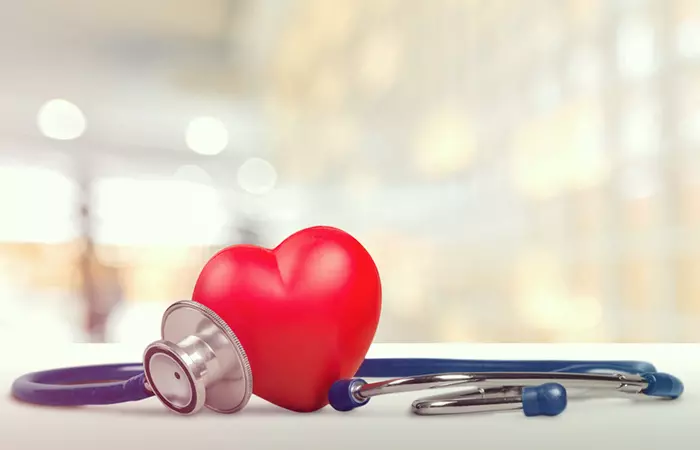
Excessive consumption of unhealthy foods, alcohol, and smoking leads to an unhealthy heart. The cholesterol and triglyceride levels rise and cause heart blockage, ultimately weakening the heart muscles. Eating healthy by including plant-based food such as fresh green vegetables, fruits, fruit juices, seasonal ingreditents and plant sources of protein in your diet, limiting the intake of red meat, and avoiding junk food, animal fat, and sugary foods helps reduce cholesterol and improve heart health (8).
4. Decreases Cancer Risk
Cancer is the second leading cause of death worldwide (9). An unhealthy lifestyle and genetic factors can cause the cells in your body to divide exponentially, leading to abnormal cell functions (10).
Researchers have found that consuming organic edibles and unprocessed foods is the best way to keep cancer at bay. There are certain foods that have nutrients that may inhibit cancer progression. These include berries, watermelon, broccoli, cabbage, tomato, garlic, turmeric, ginger, and leafy greens (11).
5. Increases Immunity
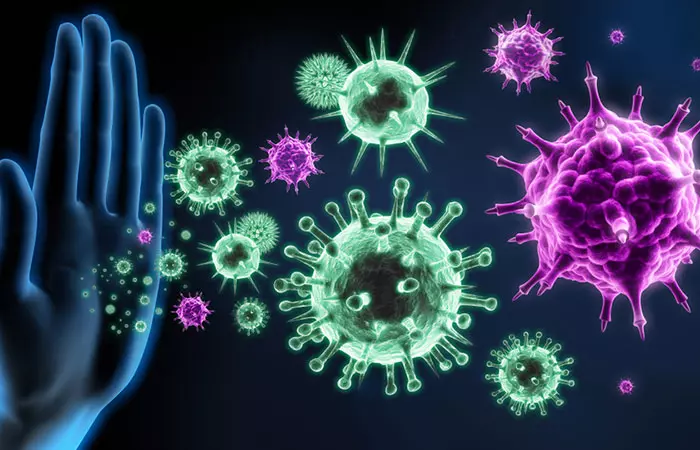
A healthy immune system helps keep infectious diseases, autoimmune diseases, and the common flu at bay. It aids faster recovery and healing. Consume foods that are loaded with antioxidants, vitamins, and minerals.
Eating healthy foods like blueberries, strawberries, oranges, grapefruit, other fruits rich in vitamin C, leafy greens, carrot, tomato, cheese, milk, fatty fish, herbs, and spices help improve your immunity (12).
6. Boosts Brain Health
Healthy eating boosts brain health and elevates your mood. Foods loaded with omega-3 fatty acids (olive oil, fatty fish, fish oil, nuts, and seeds) help maintain the cell membrane and normal brain function and facilitate synaptic plasticity. These foods are used as “diet therapy” for people suffering from dyslexiai A common learning disorder characterized by difficulty in reading, writing, spelling, and speaking. , attention deficit disorders, schizophreniai A serious chronic mental disorder that disrupts a person’s ability to feel, think, and behave properly. , depression, and bipolar disorderi A mental disorder that causes intense shifts in moods, ranging from extreme happiness (mania) to sad mood (depression). (13).
7. Improves Digestion
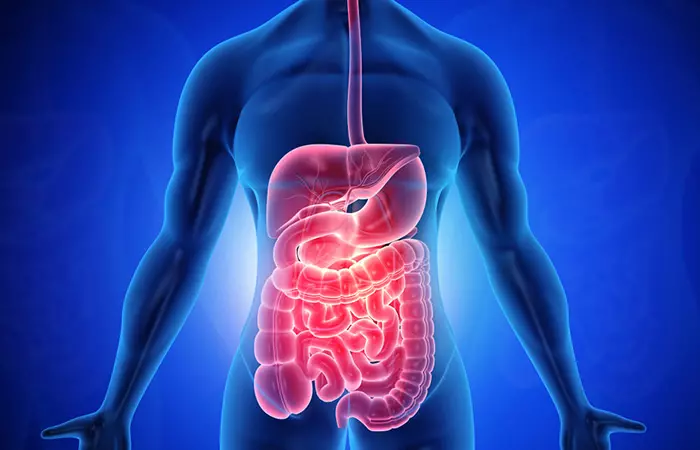
Whole ingredients like vegetables. fruits and whole grains, and functional foods like probiotics are essential for maintaining good gut health and improving digestion. Dietary fiber is found in fruits and vegetables. Dietary fiber cannot be digested by humans, but the good gut bacteria ferment it, which helps them thrive and survive (14).
Dietary fiber also adds bulk to the stool and improves bowel movement, thereby reducing constipation (15).
Probiotics like yogurt, buttermilk, kimchi, probiotic drinks, and sauerkraut help add more good gut bacteria, which, in turn, help improve digestion (16).
8. Strengthens Teeth And Bones
Eating healthy also helps strengthen bones and teeth. Fish, milk, tofu, soy, leafy greens (except spinach), oranges, soaked beans, and nuts are a great source of calcium. You must also get morning sun or eat egg yolks, liver, and saltwater fish for your daily dose of vitamin D (17).
9. Delays Aging
Eating healthy foods has a direct impact on how fast you age. Fresh greens, fruits, lean protein, fatty fish, whole grains, green tea, herbs, and spices are loaded with antioxidants, vitamins, minerals, and omega-3 fatty acids that help flush out the harmful free oxygen radicals from the body. This, in turn, helps maintain the DNA structure and slow down the aging process (18).
10. Improves Skin Health
Unhealthy oily junk food leads to breakouts and acne. The key to getting healthy skin is drinking water, green tea, coconut water and eating fruits, vegetables, fatty fish, nuts, seeds, and whole grains (19).
 Quick Tip
Quick TipConsume foods loaded with vitamin A, C, D, and E and omega-3 fatty acids, and avoid trans fats and sugary foods. Also, maintain good hygiene, and you will start seeing an improvement in your skin.
11. Reduces Stress
Vegetables and fruits are loaded with antioxidants. Antioxidants help reduce oxidative stressi An imbalance between free radicals and antioxidants, which can increase the risk of high blood pressure and diabetes. in the body, thereby reducing inflammation (20). Unhealthy foods do just the opposite. They have no nutritional value, and the trans fats and high sugar increase inflammation in the body, leading to an increase in oxidative stress (21), (22).
Avoid eating heavy, unhealthy, fat-loaded foods. In the long run, eating light and healthy foods is the best solution to physical and mental stress.
12. Improves Sleep Quality
Healthy eating also helps improve sleep quality. Late-night snacking on junk food or ice cream, having dinner at an odd time, and consuming oily and heavy foods disrupt the normal biological cycle. This increases the chances of obesity and metabolic syndromei A group of medical conditions that increase the risk of heart attacks, strokes, or type-2 diabetes. (23). It leads to poor digestion and concentration and leaves you feeling uneasy.
Eating healthy and at least three hours before you go to bed aids digestion, lowers stress, and helps you get sound sleep.
13. Increases Productivity
Light and healthy food helps keep your energy levels high and your brain alert and makes you more active. This, in turn, helps increase your productivity (24). Try consuming superfoods that can help you lose weight, improve your energy levels, and keep your brain active.
Alisa Burke, an author and teacher, shared her experience of overcoming bad headaches and low energy levels after 10 months by making small changes in her food choices. She said “If I stay away from lots of sugar, my energy and mood seem to be pretty even throughout the day (i).”
14. Increases Longevity
Eating healthy has a direct correlation with living longer and your quality of life. Healthy foods decrease inflammation and reduce the risk of various diseases (25).
15. Good For The Environment
The less processed a food is, the less impact it has on the environment and climate. Eating organic, fresh vegetables, fruits, whole grains, plant proteins, farm-raised chicken and eggs, and wild-caught fish and limiting dairy (as much as possible) is a smart way to contribute towards sustainability.
 Quick Tip
Quick TipUnderstanding the importance of healthy food is essential, as it helps the body function optimally, improving overall well-being. The journey of getting started on healthy eating might seem daunting, but the following tips may make the process easier.
Tips For Healthy Eating
- Have balanced meals that include a variety of food groups like fruits, vegetables, whole grains, lean proteins, and dairy.
- Incorporate locally grown and seasonal food into your meals that are naturally more nutritious and favorful.
- Pay attention to portion sizes to avoid overeating. You can use smaller plates to help control your portion sizes.
- Eat mindfully and savor each bite you take. This can help prevent overeating and enhance your dining experience.
- Our bodies may, sometimes, mistake thirst for hunger. So, keep yourself hydrated by drinking plenty of water throughout the day.
- If you feel hungry between meals, choose healthy snacks like fruits, nuts, or yogurt instead of sugary or salty snacks.
Infographic: Benefits Of Eating Healthy
Because of hectic schedules, many of us nowadays end up having unhealthy foods with nearly zero nutritional value. But if we decide to invest a little time and check our diet, it will reward us in multiple ways.
Know what are the benefits of eating healthy food from the infographic below.
Some thing wrong with infographic shortcode. please verify shortcode syntax
Healthy eating which is eating nutrient-rich, low-fat, and low-carb foods have many health benefits. The positive effects of healthy eating on your life may include weight loss, reduced risk of diabetes, improved heart health, decreased cancer risk, and better immunity. It is also important for physical and mental well-being. You can consider diets such as the Mediterranean diet or opt for vegetarian cuisine. However, consult your dietitian and discuss a proper diet plan. Stop consuming unhealthy foods and indulge in healthy eating that makes you healthier.
Frequently Asked Questions
How can I transition to a healthier diet without feeling deprived?
Making the switch to a healthy diet can be rewarding and enjoyable. Begin with little, gradual adjustments, like replacing sugary snacks with fruits, including more veggies in your meals, and trying out new recipes that emphasize healthful ingredients. Remember that the objective is to create long-lasting routines that support your health and allow occasional indulgences.
What is the healthiest food in the world?
Spinach is generally considered one of the healthiest foods. Including it in your regular diet helps improve overall health and provides balanced sustenance.
Can I eat an egg every day?
Yes, eggs can be consumed every day. However, excess consumption may trigger negative effects like an increased risk of cardiovascular disease or pimples. Hence, eating one egg a day is generally advised.
Which fish is the healthiest?
Salmon is generally considered the healthiest fish because of its omega-3 fatty acid and vitamin D content.
Illustration: Amazing Benefits Of Healthy Eating On Your Life
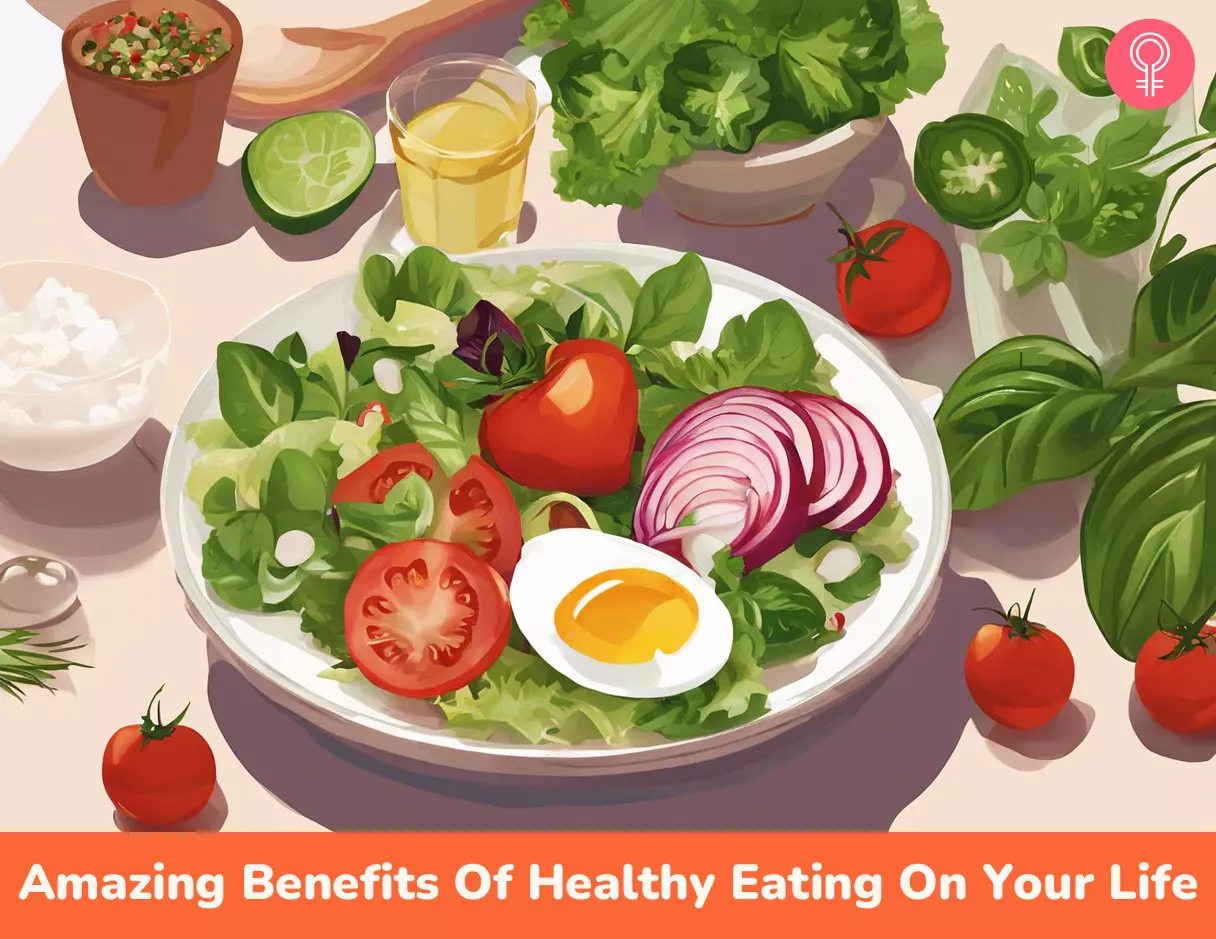
Image: Stable Diffusion/StyleCraze Design Team
Healthy eating can have amazing benefits on your life. Watch the following video and learn how it can improve your physical and mental health, energy levels, and more.
Personal Experience: Source
StyleCraze's articles are interwoven with authentic personal narratives that provide depth and resonance to our content. Below are the sources of the personal accounts referenced in this article.
i. My journey with healthy eatinghttps://alisaburke.blogspot.com/2015/04/my-journey-with-healthy-eating.html
References
Articles on StyleCraze are backed by verified information from peer-reviewed and academic research papers, reputed organizations, research institutions, and medical associations to ensure accuracy and relevance. Read our editorial policy to learn more.
- Sartorelli, Daniela Saes et al. “High intake of fruits and vegetables predicts weight loss in Brazilian overweight adults.” Nutrition research (New York, N.Y.) vol. 28,4 (2008): 233-8.
https://pubmed.ncbi.nlm.nih.gov/19083413/ - Albracht-Schulte, Kembra et al. “Omega-3 fatty acids in obesity and metabolic syndrome: a mechanistic update.” The Journal of nutritional biochemistry vol. 58 (2018): 1-16.
https://pubmed.ncbi.nlm.nih.gov/29621669/ - Leidy, Heather J et al. “The role of protein in weight loss and maintenance.” The American journal of clinical nutrition vol. 101,6 (2015): 1320S-1329S.
https://pubmed.ncbi.nlm.nih.gov/25926512/ - Maki, Kevin C., et al. “The Relationship between Whole Grain Intake and Body Weight: Results of Meta-Analyses of Observational Studies and Randomized Controlled Trials.” Nutrients 11.6 (2019): 1245.
https://www.ncbi.nlm.nih.gov/pmc/articles/PMC6627338/ - Diabetes, WHO.
https://www.who.int/news-room/fact-sheets/detail/diabetes - Type 2 diabetes: Overview, InformedHealth.org, National Institutes of Health.
https://www.ncbi.nlm.nih.gov/books/NBK279509/ - Ley, Sylvia H., et al. “Prevention and management of type 2 diabetes: dietary components and nutritional strategies.” The Lancet 383.9933 (2014): 1999-2007.
https://www.ncbi.nlm.nih.gov/pmc/articles/PMC4751088/ - Casas, Rosa, et al. “Nutrition and cardiovascular health.” International journal of molecular sciences 19.12 (2018): 3988.
https://www.ncbi.nlm.nih.gov/pmc/articles/PMC6320919/ - Cancer, WHO.
https://www.who.int/news-room/fact-sheets/detail/cancer - Koriech, Osama M. “Diet and cancer.” Journal of family & community medicine 1.1 (1994): 2.
https://www.ncbi.nlm.nih.gov/pmc/articles/PMC3437178/ - Donaldson, Michael S. “Nutrition and cancer: a review of the evidence for an anti-cancer diet.” Nutrition journal 3.1 (2004): 19.
https://www.ncbi.nlm.nih.gov/pmc/articles/PMC526387/ - Corley, Douglas A., and Detlef Schuppan. “Food, the immune system, and the gastrointestinal tract.” Gastroenterology 148.6 (2015): 1083-1086.
https://www.ncbi.nlm.nih.gov/pmc/articles/PMC4409565/ - Gómez-Pinilla, Fernando. “Brain foods: the effects of nutrients on brain function.” Nature reviews neuroscience 9.7 (2008): 568-578.
https://www.ncbi.nlm.nih.gov/pmc/articles/PMC2805706/ - Dhingra, Devinder, et al. “Dietary fibre in foods: a review.” Journal of food science and technology 49.3 (2012): 255-266.
https://www.ncbi.nlm.nih.gov/pmc/articles/PMC3614039/ - Yang, Jing, et al. “Effect of dietary fiber on constipation: a meta analysis.” World journal of gastroenterology: WJG 18.48 (2012): 7378.
https://www.ncbi.nlm.nih.gov/pmc/articles/PMC3544045/ - Ercolini, Danilo, and Vincenzo Fogliano. “Food design to feed the human gut microbiota.” Journal of agricultural and food chemistry 66.15 (2018): 3754-3758.
https://www.ncbi.nlm.nih.gov/pmc/articles/PMC5951603/ - Calcium and Vitamin D: Important at Every Age, NIH Osteoporosis and Related Bone Diseases National Resource Center.
https://www.niams.nih.gov/health-topics/bone-health-and-osteoporosis - Boccardi, Virginia, Giuseppe Paolisso, and Patrizia Mecocci. “Nutrition and lifestyle in healthy aging: the telomerase challenge.” Aging (Albany NY) 8.1 (2016): 12.
https://www.ncbi.nlm.nih.gov/pmc/articles/PMC4761710/ - Pappas, Apostolos. “The relationship of diet and acne: a review.” Dermato-endocrinology 1.5 (2009): 262-267.
https://www.ncbi.nlm.nih.gov/pmc/articles/PMC2836431/ - Harasym, Joanna, and Remigiusz Oledzki. “Effect of fruit and vegetable antioxidants on total antioxidant capacity of blood plasma.” Nutrition (Burbank, Los Angeles County, Calif.) vol. 30,5 (2014): 511-7.
https://pubmed.ncbi.nlm.nih.gov/24698344/ - Mozaffarian, Dariush, et al. “Dietary intake of trans fatty acids and systemic inflammation in women.” The American journal of clinical nutrition 79.4 (2004): 606-612.
https://www.ncbi.nlm.nih.gov/pmc/articles/PMC1282449/ - Della Corte, Karen W., et al. “Effect of dietary sugar intake on biomarkers of subclinical inflammation: a systematic review and meta-analysis of intervention studies.” Nutrients 10.5 (2018): 606.
https://www.ncbi.nlm.nih.gov/pmc/articles/PMC5986486/ - Yoshida, Junko, et al. “Association of night eating habits with metabolic syndrome and its components: a longitudinal study.” BMC public health 18.1 (2018): 1366.
https://www.ncbi.nlm.nih.gov/pmc/articles/PMC6288903/ - Sutliffe, Jay T., et al. “A worksite nutrition intervention is effective at improving employee well-being: a pilot study.” Journal of nutrition and metabolism 2018 (2018).
https://www.ncbi.nlm.nih.gov/pmc/articles/PMC5954895/ - Marsman, D., et al. “Healthy ageing: the natural consequences of good nutrition—a conference report.” European journal of nutrition 57.2 (2018): 15-34.
https://www.ncbi.nlm.nih.gov/pmc/articles/PMC5984649/
Read full bio of Nilofar Pendhari
Read full bio of Arshiya Syeda
Read full bio of Payal Karnik






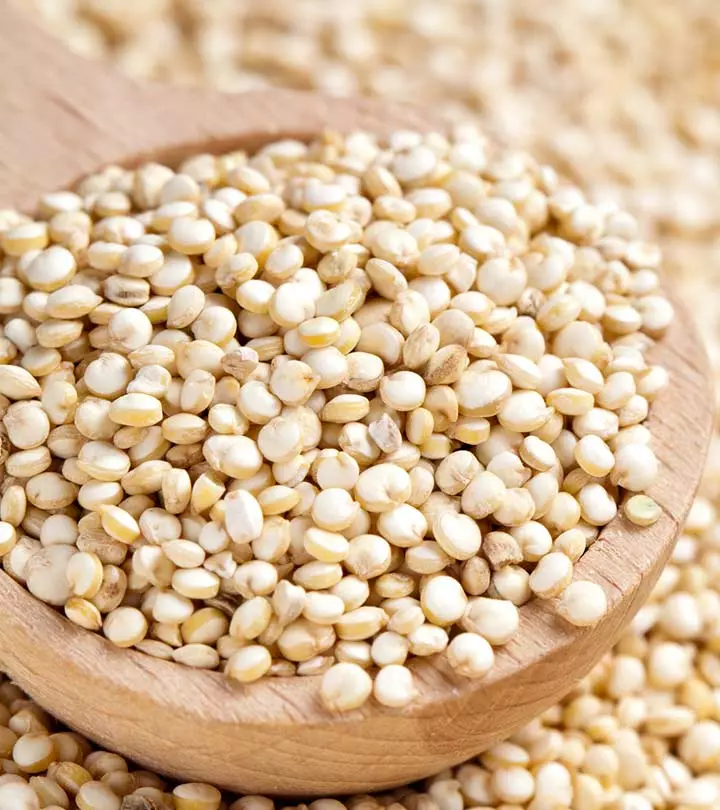




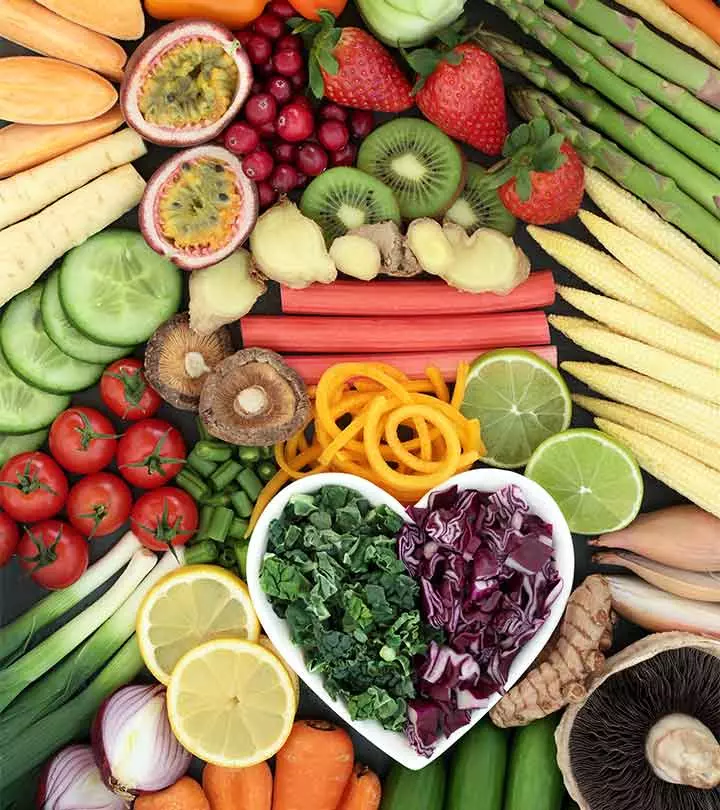

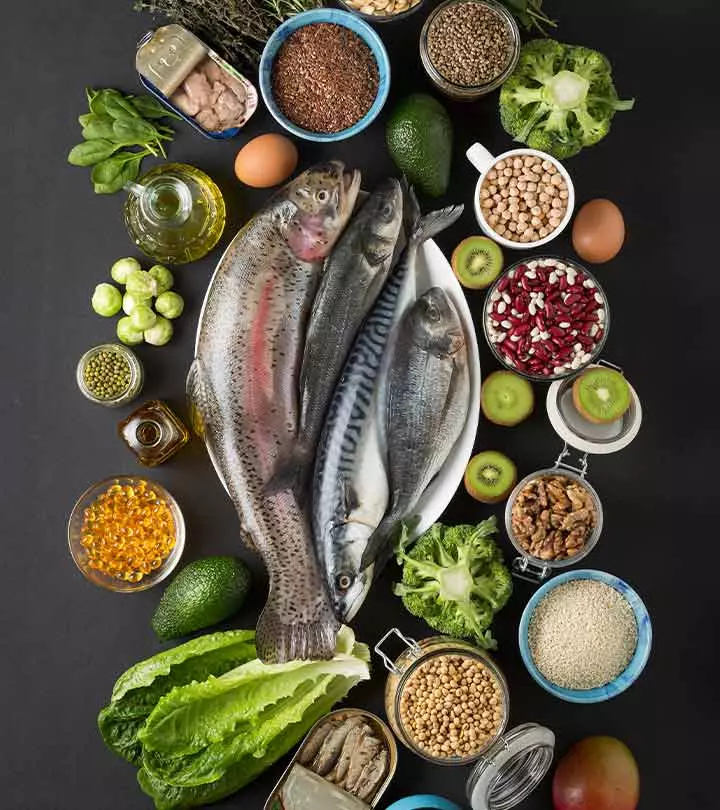




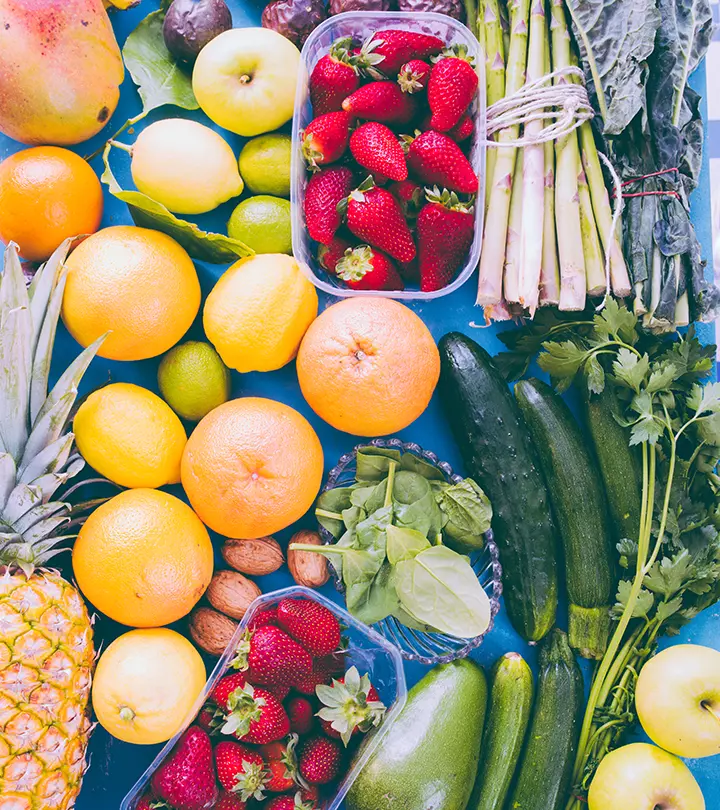
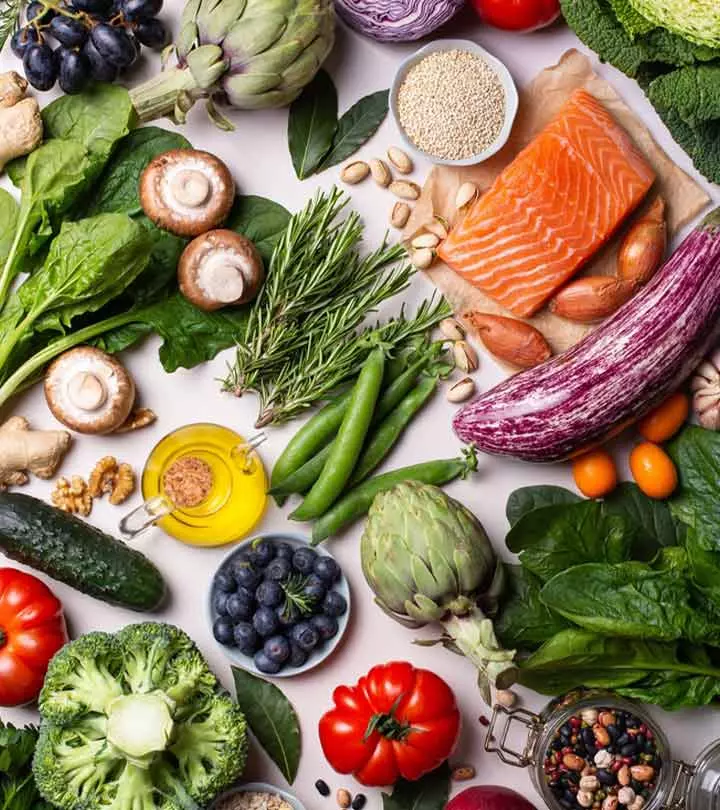






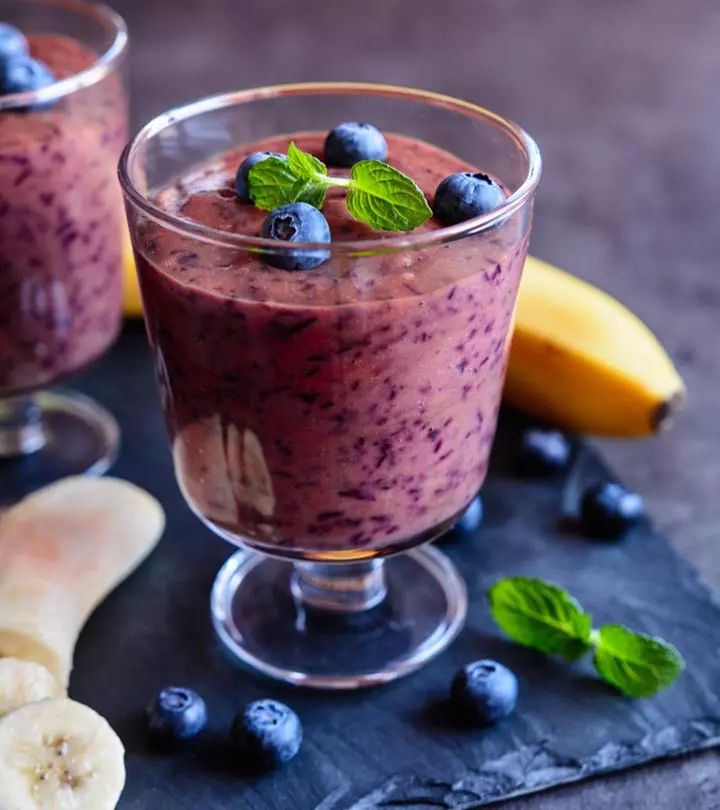
Community Experiences
Join the conversation and become a part of our empowering community! Share your stories, experiences, and insights to connect with other beauty, lifestyle, and health enthusiasts.